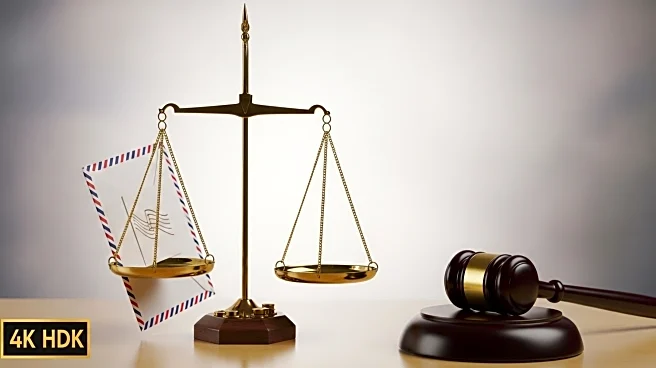What is the story about?
What's Happening?
Lebene Konan, a Texas real estate agent, has brought her case against the U.S. Postal Service to the Supreme Court, alleging intentional withholding of her mail due to racial discrimination. Konan claims that the USPS has declined to deliver her mail for years, citing a racially motivated harassment campaign. The legal question before the Supreme Court is whether the Postal Service is immune from lawsuits even if mail is intentionally withheld, under a 1946 federal law that protects the USPS from liability for mail loss or negligent transmission. The case has divided the Supreme Court, with some conservative justices expressing reservations about the government's interpretation of the law. Chief Justice John Roberts and Justice Elena Kagan have questioned whether the term 'loss' implies malfeasance. Konan's lawsuit was initially dismissed by a federal district court in Texas, but the 5th US Circuit Court of Appeals reversed the decision, allowing the case to proceed. The Biden administration has appealed the decision to the Supreme Court.
Why It's Important?
The outcome of this case could have significant implications for the U.S. Postal Service and its legal liabilities. If the Supreme Court rules in favor of Konan, it could open the USPS to a flood of lawsuits from individuals claiming intentional mail withholding. This could lead to increased operational costs and potentially higher postage rates, affecting millions of Americans who rely on postal services. The case also highlights issues of racial discrimination and the legal protections available to individuals facing such challenges. A ruling against the USPS could set a precedent for holding government agencies accountable for discriminatory practices, impacting public policy and civil rights protections.
What's Next?
A decision in Konan's case is expected by the end of June. The Supreme Court's ruling will determine whether Konan can pursue her lawsuit against the USPS. If the court sides with Konan, it may lead to increased scrutiny of USPS practices and potentially prompt legislative changes to address mail delivery issues. The case could also influence how other government agencies handle claims of discrimination and intentional misconduct.

















